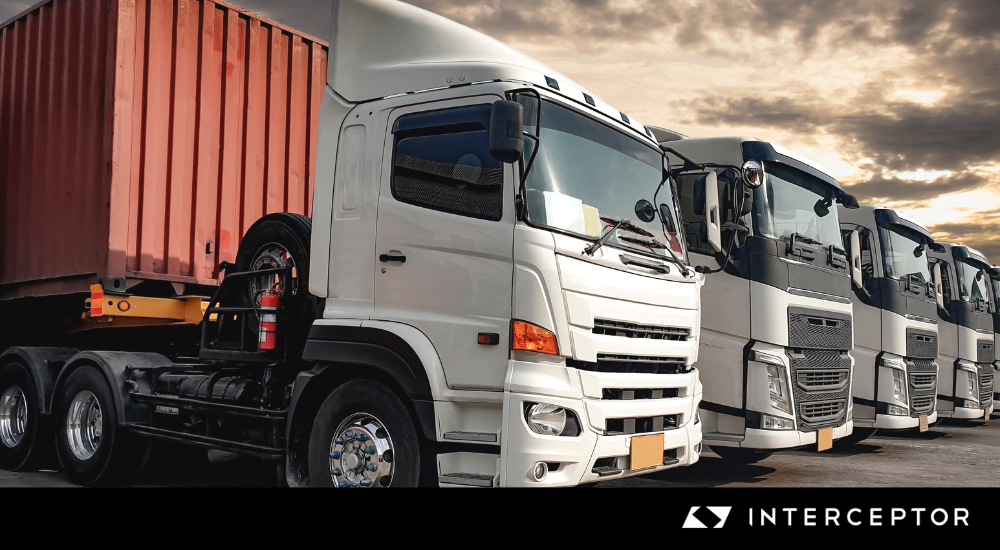In freight logistics, time isn’t just money; it’s trust, compliance, and in some cases, the difference between a product arriving in perfect condition or being rendered worthless.
For cold chain operations, where pharmaceuticals, fresh produce, frozen foods, or specialty chemicals are involved, a single temperature breach can trigger cascading losses: ruined inventory, regulatory penalties, and damaged customer relationships.
The last mile, often the most unpredictable and expensive segment of the delivery journey, is where many of these risks come to a head. Road closures, traffic delays, weather disruptions, and handling issues all threaten timelines and conditions. For cold chain shipments, even a short delay can compromise temperature stability, threatening the entire load.
In a sector that demands precision, adaptability, and constant vigilance, modular technology is emerging as the backbone of modern logistics, and the Interceptor is leading the way.
Why Last-Mile & Cold Chain Are So Challenging
Last-mile delivery is inherently complex. It involves fragmented delivery points, varying route conditions, and a constant battle against inefficiency. While the average line-haul segment of freight may run like clockwork, the last 50 miles are often unpredictable, and those final miles are usually the most expensive part of the delivery process.
Cold chain logistics adds another layer of complexity. Products often must remain within a tightly controlled temperature range for the entire journey. Any fluctuation can result in spoilage, safety risks, or non-compliance with strict regulatory requirements such as the FDA, WHO, or HACCP standards.
According to the International Institute of Refrigeration, 13% of total global food production is lost every year due to inadequate cold chain systems, a figure that translates into billions in wasted product and revenue. Many of these losses occur not because of negligence, but because systems fail to adapt in real time when conditions change. Many of these losses occur not because of negligence, but because systems fail to adapt in real time when conditions change.
To keep freight moving and to ensure cold chain integrity, logistics teams need solutions that are as flexible as they are robust. That’s where modular technology comes in.
What Modular Tech Brings to the Table
In logistics, modular technology refers to hardware and software systems that are flexible, scalable, and easily integrated into existing operations. Rather than forcing businesses into costly, one-size-fits-all upgrades, modular solutions allow teams to add, remove, or adapt components as needs change.
This means:
- Deploying new sensors without replacing the entire network
- Adding connectivity options: wired or wireless, based on the environment
- Scaling up monitoring systems for seasonal demand or scaling down during slower periods
The Interceptor’s modular edge designs offer exactly that adaptability. Built with a rugged design to withstand demanding environments, it integrates seamlessly with sensors, gateways, and cloud platforms. Its architecture allows companies to evolve their systems over time — without the downtime, infrastructure overhauls, or sunk costs that come with rigid solutions.
Real-World Scenario: Modular Tech in Action
Imagine a refrigerated shipment of fresh seafood on its way to a major urban market. Halfway through the journey, a sudden road closure forces a long detour. Without proactive intervention, the extended travel time could push temperatures outside of acceptable limits.
With the Interceptor’s real-time monitoring capabilities, modular sensors inside the refrigerated unit stream real-time data to logistics managers. The moment a deviation is detected, automated alerts are triggered, ensuring there’s no lag between problem and action.
Within moments, the driver receives updated route instructions to minimize added travel time, while the refrigeration system is remotely fine-tuned to stabilize conditions. This quick, coordinated response keeps the shipment within its safe range, even when the unexpected happens.
The result? The shipment arrives intact, customers remain satisfied, compliance is maintained, and costly product loss is avoided, all because the technology adapted instantly to a changing situation.
The Future of Modular Logistics & Why the Interceptor Leads It
The logistics industry is on the cusp of a major shift. The next decade will bring tighter regulations, a push for greater transparency, and an increased reliance on IoT-enabled monitoring. Predictive analytics will help forecast issues before they occur, and connectivity will be expected anywhere, from dense urban centers to remote, infrastructure-limited areas.
Scalability will be the defining factor for logistics technology. Systems that require complete replacement every time the market changes will simply fall behind. The Interceptor’s modular architecture is built for this future:
- Hybrid connectivity: Supports both wired and wireless data transmission for any operational environment.
- Plug-and-play integration: Easily adds new sensors, gateways, and capabilities without redesigning the entire system.
- Extreme durability: Operates reliably in harsh environments, whether in the last mile of a city route or isolated cold storage facilities.
With this approach, the Interceptor doesn’t just meet today’s operational needs; it’s engineered to grow, adapt, and perform no matter how the logistics landscape evolves. It’s not about chasing every new tech trend. It’s about investing in a system that can integrate tomorrow’s capabilities without losing the reliability you depend on today.
Keeping Freight Moving Without Compromise
In freight and cold chain logistics, adaptability is the ultimate competitive advantage. The companies that thrive will be those that can pivot quickly, maintain operational visibility, and meet compliance requirements without sacrificing efficiency.
With modular, future-ready solutions like the Interceptor, logistics teams can do more than react; they can anticipate, adapt, and keep freight moving under any conditions.
Your freight doesn’t stop. Neither should your technology.

